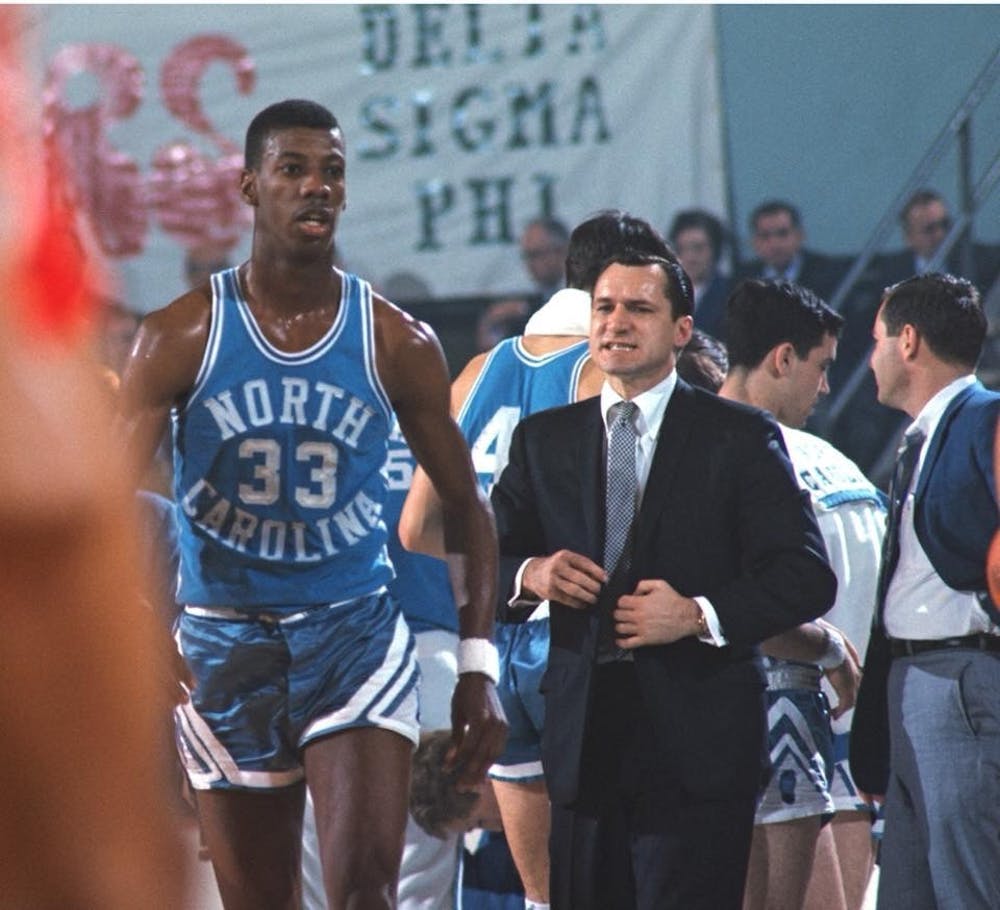On Tuesday, The Daily Tar Heel spoke with Charles Scott, the first Black men's basketball player to integrate the sport at the University, regarding Scott's thoughts on Silent Sam and the decision of the UNC-system Board of Governors to push Chancellor Carol Folt's resignation forward to Jan. 31, 2019.
The Daily Tar Heel: I would like to hear your general thoughts on the events that have transpired regarding Silent Sam and Carol Folt?
Charles Scott: To be honest with you, in September at my Hall of Fame enshrinement, I made a speech about how I was very proud to be a Tar Heel. Today, I don’t feel that way. I understand the authority that the Board of Governors have, I understand the right to do what they have done. I do not question anything that they have done, other than the manner that it was done. I think Chancellor Folt looked out and her interests have always been the University and the student body and the character and the integrity of the student body and I think that was her main interest in what she’s done and I think the response has been a little vindictive and pettiness to her. And that disappoints me. The University of North Carolina in the whole system is the crown jewel and I think too many times we use, and when I say we I mean the University itself, use the character and the moral fortitude of Coach Smith to kind of give us a picture of what the University is about. But I don’t think today they can use Coach Smith’s moral character as the way the board responded to Ms. Folt.
And I think that the student body should really take a look and understand the stance she took for them. I’m very proud to say I’m a friend of hers and I think that the stance she took for the student body is courageous and just as important as the stand that I took when I went to the University of North Carolina. She took a stand on character and she took a stand on integrity and she took a stand on what she believed was right. And the response that she got from the Board of Governors I thought was anger.
DTH: So would you say the way that Chancellor Folt has been treated and the response from the Board of Governors, that is what specifically inspired you to speak today?
CS: The way she’s been treated because I know that her heart was for the University. The thing I saw in Chancellor Folt was her love and desire to make the University the best it could be and the best circumstance in the spirit of Coach Smith. That is what I recognize in her that made me so proud to be a friend of hers and made me so proud to do what I could to help the University because I knew that her direction was one that Coach Smith would be very proud to say he was a part of. And now that has been stymied and really plucked out and I’m very disappointed.
DTH: So you talked about Coach Smith. Coach Smith did so many things when he was here in so many different ways. How do you feel Dean Smith specifically paved the way as a moral compass for the University?
CS: I think he’s paved the way so widely in the whole state. He did it through integration, his moral compass was very fair. He did it through the death penalty. He understood integration. People forget that Coach Smith’s father, back in 1935, had a Black person on his basketball team in Kansas. So Coach Smith’s moral fortitude came from his own character and his character permeated to the University and we all became very proud to associate ourselves with Coach Smith’s moral character because he never changed. He stood straight and he was always a person that you could always depend on to be honest and fair and that’s all we can ask of people — honesty and fairness and kindness. I think he showed us all and the University of North Carolina used those characteristics to permeate what they were about as a University. It’s grown because of that and we all have gained from it and I think today, we all lost a little bit of it.
DTH: When you were here or even after you graduated and left the school, did you ever talk to Dean Smith regarding his thoughts on Silent Sam?



